📽️🇪🇸 The Boat (Series) REVIEW| El Barco (Serie) RESEÑA
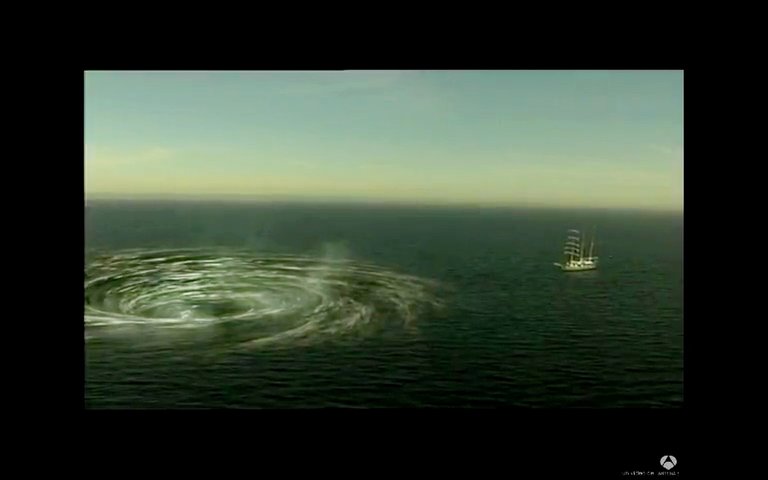
I was born in the mountains, a place where the only "wave" I could hear was the wind through the trees. The first time the sea entered my life was in an elementary school textbook. Those pages, with their drawings of boats and seagulls, filled my head with dreams about something I couldn't really understand.
Years later, a series, The Boat (Antena 3, 2011-2013), brought back that childhood fascination. Only then, that wonder had turned into an existential nightmare.
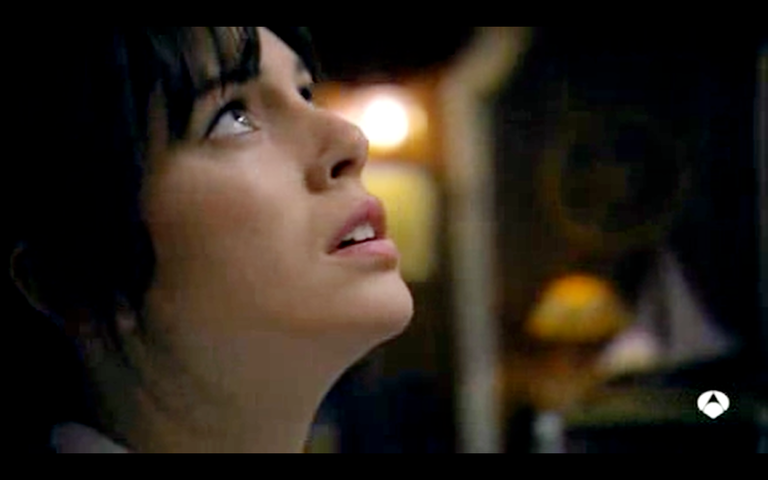
Imagine the scene: the ocean swallows almost everything, a sailboat called the Polar Star becomes the last floating refuge. Inside, a crew of boys and girls finds themselves embroiled in a drama that, honestly, at times bordered on genius and at others, pure nonsense.
Like that little boy who had never set foot on the shore, I let myself be carried by the tide, not knowing if I would eventually reach a safe harbor or if I would sink into a sea of inconsistencies.
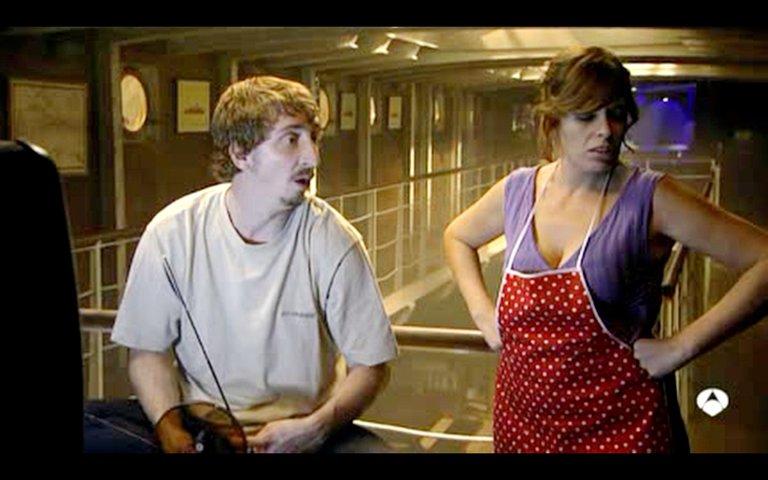
The story, born from the minds of Álex Pina (the same man who later blew our minds with Money Heist) and Iván Escobar, began with an idea that made your skin crawl.
An experiment in Geneva, something scientific, unleashes a disaster. Ninety-nine percent of the planet ends up submerged. The forty crew members of that training ship, including Captain Ricardo, played by Juanjo Artero; his daughter Ainhoa, played by Blanca Suárez; the rebellious boy, Ulises, with the face of Mario Casas; and the endearing "Bubble," played by Iván Massagué, realize something chilling: they are the only ones left.
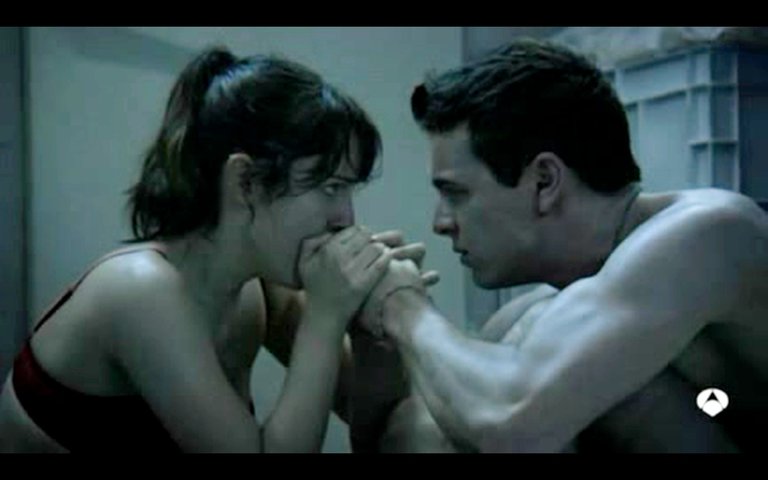
It was as if Lost had boarded a ship, with that salty smell and everyone in sailor uniforms. On its premiere day in 2011, the series was a huge hit. 4.7 million people watched it. Figures like that seem like the stuff of science fiction today, don't you think? As if the series itself had predicted its own sinking.
The first season, in truth, was like a breath of fresh air. I remember episodes like "A Million Miles," where everything blended so beautifully: the struggle for survival, the mystery surrounding Project Gaia, and the tension you felt between the characters. The connection between Ulises and Ainhoa on screen was electric; it captivated you. And Professor Gamboa, played by Juan Pablo Shuk, was a chilling villain, even when he smiled. Back then, anything seemed possible on that show.
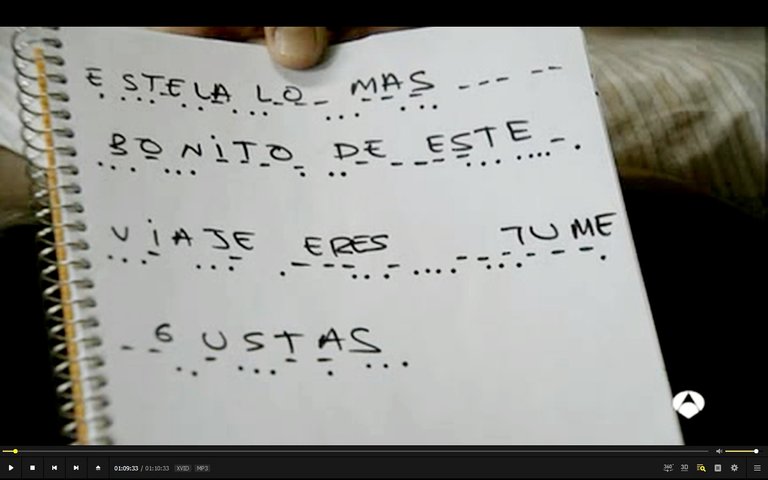
Even I, a mountain man and a marabou hunter, imagined myself sailing alongside them, part of the adventure. But then the second and third seasons arrived, and the ship, little by little, began to take on water from all sides.
Suddenly, the plot became filled with strange, ever-changing viruses, with unexplained plots, like the Alexandria Project. And even an Atlantis appeared that seemed like a joke. I swear I wondered: how was it possible that, after two years adrift, they still had cookies in the pantry? Or that the walkie-talkies worked as if they were in the 22nd century?
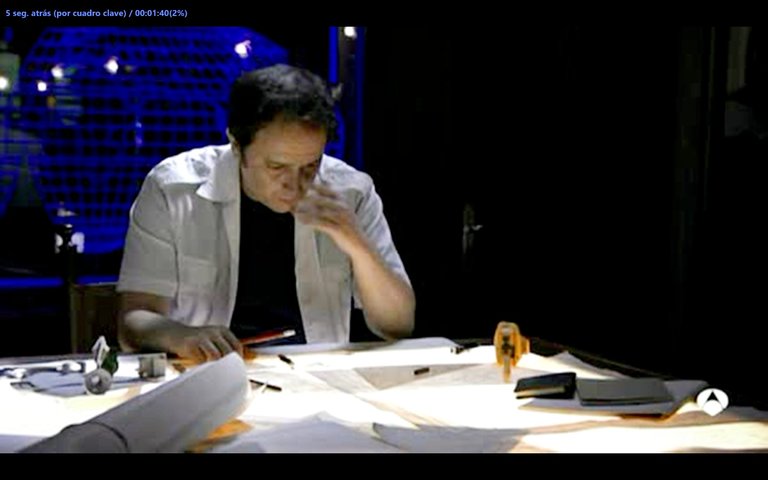
The characters, poor things, became caricatures of themselves. Ainhoa, for example, jumped from one bed to another as if the end of the world were a reality show. Gamboa changed sides faster than time on the high seas. And the crew's priest lost his faith every now and then. Even I, who only knew about the sea what I was told, realized that something wasn't right on the Estrella Polar. It smelled rotten, and it wasn't exactly the fish.
But, despite so many shipwrecks, there were some things that truly shone through. In the midst of so much storm, two characters were brilliant. One was Burbuja, the kitchen assistant. He had brain damage, but he hid a brilliant, scientific mind. Iván Massagué gave him a humanity that truly touched your soul. And then there was Manolito, the duck. Yes, a real duck. Without saying a single word, he won the affection of all the fans. It was as if the writers, in the midst of their own creative chaos, had accidentally let in a spark of tenderness.
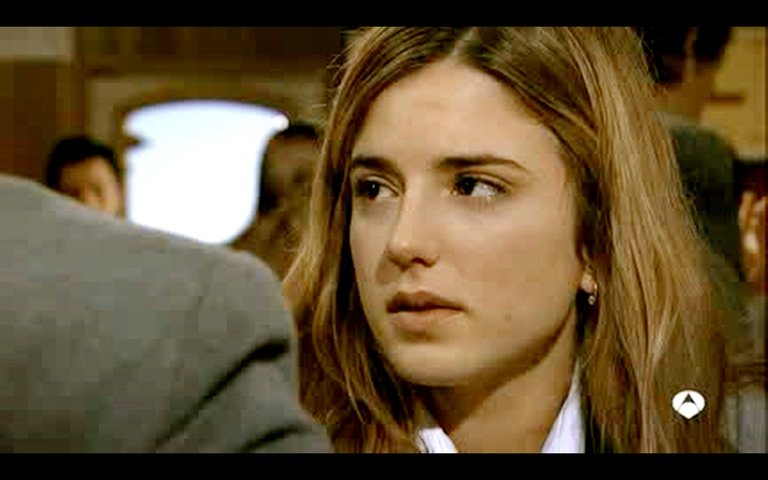
The ending, however, was the biggest disappointment. I won't give you any details; I don't want to spoil anything for you. But I will tell you that it left more loose ends than a ship after a storm. Not even the best sailor's knot could tie up those questions.
Who was behind the Gaia Project?
What had happened to the rest of the world?
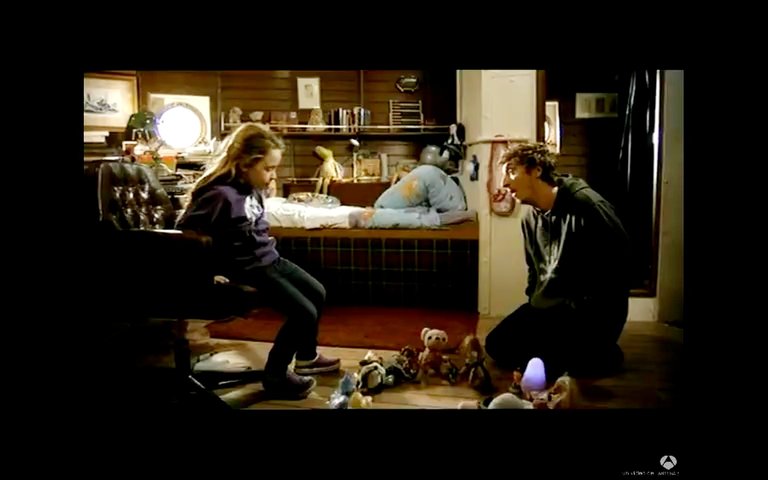
Captain Ricardo's fate was as lost as my own faith in the writers. It was a hastily executed conclusion, as if they'd seen the ship sinking and decided to jump before it took them.
Even with everything I've told you, The Ship has its place in history. It was a series that dared to be different in its filming style, using a real ship and impressive locations like Peñíscola. They managed to capture the immensity of the sea, turning it into a perfect metaphor for loneliness. They sold it to fifteen countries. There was even talk of a remake in Russia. Despite his setbacks, he managed to navigate my memory, and that, for me, is a victory in itself.
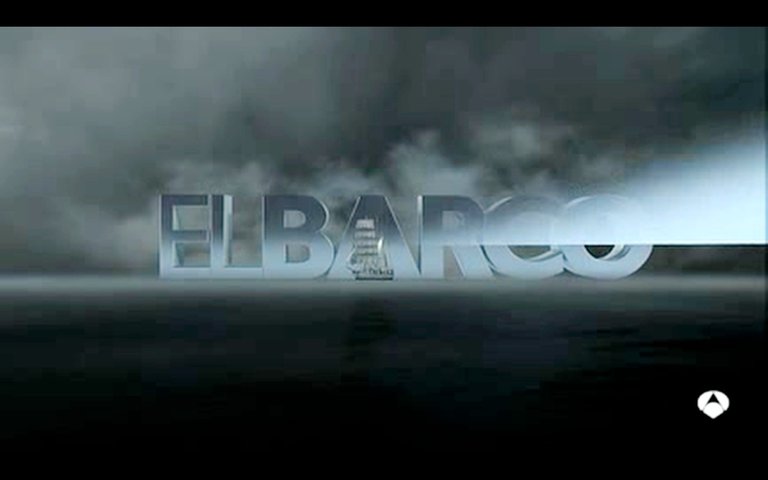

⛵ This post is original. All rights reserved.
⛵ The images are screenshots from my computer taken with my phone.
I am a writer. I have published: Ashes' Banquet (2002), Behind the Skin (2004), On This Side of Death (2014), The Natural Order of Things (2015), The Blood of the Marabou (2020), The Sixth Cavalry of Kansas (2024), and Infinite Nothingness (2024)

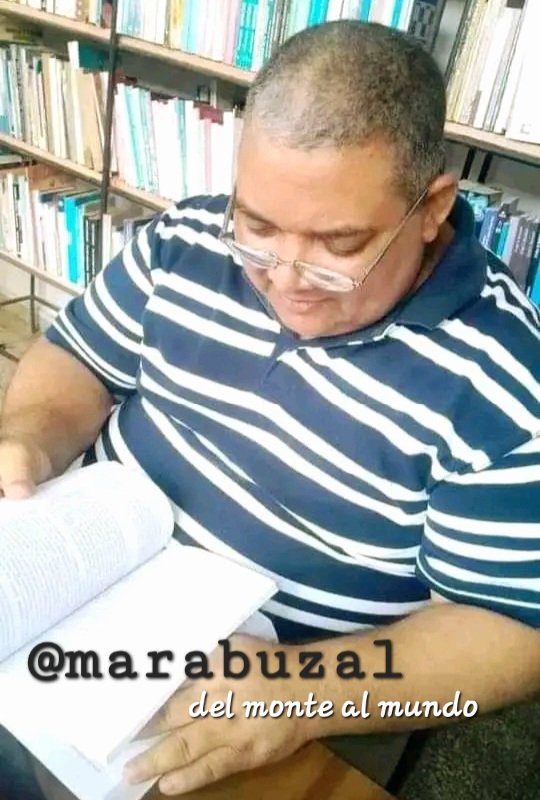

📽️🇪🇸 El Barco (Serie) RESEÑA

Nací en el monte, un lugar donde el único "oleaje" que se oía era el del viento entre los árboles. La primera vez que el mar entró en mi vida fue en un libro de primaria. Esas páginas, con sus dibujos de barcos y gaviotas, me llenaron la cabeza de sueños sobre algo que, en realidad, ni alcanzaba a entender.
Años después, una serie, El Barco (Antena 3, 2011-2013), me trajo de vuelta esa fascinación de niño. Solo que entonces, esa maravilla se había convertido en una pesadilla existencial.

Imagínate la escena: el océano se lo traga casi todo, un velero llamado Estrella Polar se convierte en el último refugio flotante. Dentro, una tripulación de chicos y chicas se ve envuelta en un drama que, sinceramente, a veces rozaba la genialidad y otras, el más puro disparate.
Como aquel pequeño que nunca había puesto un pie en la costa, me dejé llevar por la marea, sin saber si al final llegaría a un puerto seguro o si me iba a hundir en un mar de incoherencias.

La historia, que nació de la mente de Álex Pina (el mismo que luego nos voló la cabeza con La Casa de Papel) y de Iván Escobar, arrancó con una idea que te erizaba la piel.
Un experimento en Ginebra, algo científico, desata un desastre. El noventa y nueve por ciento del planeta acaba sumergido. Los cuarenta tripulantes de ese barco-escuela, entre ellos el capitán Ricardo, a quien daba vida Juanjo Artero; su hija Ainhoa, interpretada por Blanca Suárez; el chico rebelde, Ulises, con la cara de Mario Casas; y el entrañable "Burbuja", encarnado por Iván Massagué, se dan cuenta de algo escalofriante: son los únicos que quedan.

Era como si Lost se hubiera metido en un barco, con ese olor a salitre y todos con uniformes de marinero. El día del estreno, en 2011, la serie arrasó. Cuatro millones setecientas mil personas la vieron. Cifras así hoy parecen cosa de ciencia ficción, ¿no te parece? Como si la propia serie hubiera adivinado su propio hundimiento.
La primera temporada, la verdad, fue como una bocanada de aire fresco. Recuerdo episodios, como "Un millón de millas", donde todo se mezclaba muy bien: la lucha por sobrevivir, el misterio que rodeaba el Proyecto Gaia y esa tensión que sentías entre los personajes. La conexión entre Ulises y Ainhoa en la pantalla era algo eléctrico, te atrapaba. Y el profesor Gamboa, interpretado por Juan Pablo Shuk, era un villano de los que daba escalofríos, incluso cuando sonreía. En aquellos días, todo parecía posible en esa serie.

Hasta yo, hombre de montaña y marabú, me imaginaba navegando junto a ellos, formando parte de la aventura. Pero entonces llegaron la segunda y la tercera temporada, y el barco, poco a poco, empezó a hacer aguas por todas partes.
De repente, la trama se llenó de virus extraños que cambiaban, de complots que no tenían explicación, como el Proyecto Alexandria. Y hasta apareció una Atlántida que parecía de broma. Te juro que me preguntaba: ¿cómo era posible que, después de dos años a la deriva, todavía tuvieran galletas en la despensa? ¿O que los walkie-talkies funcionaran como si estuvieran en el siglo XXII?

Los personajes, pobrecitos, se convirtieron en una caricatura de sí mismos. Ainhoa, por ejemplo, saltaba de una cama a otra como si el fin del mundo fuera un reality show. Gamboa cambiaba de bando más rápido que el tiempo en alta mar. Y el cura de la tripulación perdía la fe cada dos por tres. Hasta yo, que del mar solo sabía lo que me contaban, me di cuenta de que algo no iba bien en el Estrella Polar. Olía a podrido, y no era precisamente el pescado.
Pero, a pesar de tanto naufragio, hubo cosas que brillaron de verdad. En medio de tanta tormenta, dos personajes fueron brillantes. Uno fue Burbuja, el asistente de cocina. Él tenía un daño cerebral, pero escondía una mente brillante, de científico. Iván Massagué le dio una humanidad que te llegaba al alma, de verdad. Y luego estaba Manolito, el pato. Sí, un pato real. Sin decir ni una sola palabra, se ganó el cariño de todos los fans. Era como si los guionistas, en medio de su propio caos creativo, hubieran dejado caer un chispazo de ternura por puro accidente.

El final, sin embargo, fue la mayor decepción. No te voy a contar detalles, no quiero arruinarte nada. Pero te diré que dejó más cabos sueltos que un barco después de una tormenta. Ni el mejor nudo marinero podría atar esas preguntas.
¿Quién estaba detrás del Proyecto Gaia?
¿Qué había pasado con el resto del mundo?

El destino del capitán Ricardo quedó tan perdido como mi propia fe en los guionistas. Fue un cierre hecho con prisas, como si hubieran visto que el barco se hundía y decidieron saltar antes de que los arrastrara.
Aun con todo lo que te he contado, El Barco tiene su lugar en la historia. Fue una serie que se atrevió a ser diferente en su forma de grabar, usando un buque de verdad y lugares impresionantes como Peñíscola. Lograron capturar esa inmensidad del mar, convirtiéndola en una metáfora perfecta de la soledad. La vendieron a quince países. Incluso se habló de un remake en Rusia. A pesar de sus tropiezos, supo navegar en mi memoria, y eso, para mí, ya es una victoria.


⛵ Esta publicación es Original. Todos los derechos reservados.
⛵ Las imágenes son capturas de pantalla desde mi computadora realizadas con mi teléfono.
Soy escritor. He publicado: Convite de Cenizas (2002), Tras la piel (2004), En este lado de la muerte (2014), El orden natural de las cosas (2015), La Sangre del Marabú (2020), La Sexta Caballería de Kansas (2024) y La Nada Infinita (2024)


👍
!BEER
!BBH
Agradecido por apoyar mi trabajo ✍️
View or trade
BEER.Hey @marabuzal, here is a little bit of
BEERfrom @eii for you. Enjoy it!Learn how to earn FREE BEER each day by staking your
BEER.View or trade
BEER.Hey @marabuzal, here is a little bit of
BEERfrom @eii for you. Enjoy it!Learn how to earn FREE BEER each day by staking your
BEER.Cuando El Barco salió, yo cumplía misión en Venezuela, y recuerdo que cuando venía de vacaciones me ponía a ver un maratón de capítulos... Allá no se veía esa serie. A mí me fascinó... Quisiera volver a verla. Mi personaje favorito: Burbuja...
Gracias por compartir tu anécdota.
Un abrazo. 🌱✍️
Tantos cabos sueltos jjj. Eres fascinante en tus textos.
💜🤍
Ojalá siempre tuviera lectores como tú 🌱
Los tendrás
Coincido con tu reseña. Desde que leí "El señor de las moscas" en la escuela y vi Lost, me gustan estas historias de supervivencia. Por eso "El barco" me motivó desde que comencé a verlo. De la primera temporada me resultó interesante el descontrol después del tsunami, los pleitos entre los del barco y lo de La Tierra 2. Pero en las otras temporadas se aflojó el guión, metieron personajes nuevos sin mucho sentido, los villanos parecían de telenovela y el final quedó apresurado. Tiene sus momentos buenos como lo del virus, pero se notó que no supieron mantener la calidad de la primera parte y alargaron la historia más de lo debido.
A veces nos embarcamos en empresas que son más grandes que nosotros mismos y se nos van de las manos.
Es de humanos.
Un abrazo.
Es una de mis series favoritas, mi alma se inclina siempre ante tus letras. Gracias por este post
Eres de las fieles y dulces amigas que siempre están para animar.
Gracias ✨
Join us on the Ecency Discord
Un honor ser reconocido por tu dictamen 🌱✍️
Un privilegio contar con tus letras en Hive. Honor a quien honor merece
Ayyyyy, amé esa serie.
Mi personaje favorito era Burbuja 🥰🥰.
Qué resultó ser mi actor favorito también al final de la serie (Iván Massagué)
Todos estuvieron geniales, pero ese hombre fue espectacular 👌🏻.
El final si se me hizo un tilín torpe, he de confesar en ni muy, muy humilde opinión.
Pero es una serie..."fuera de serie".
Gracias por llegarte y compartir tus opiniones sobre esta serie
Me hace muy feliz ✨
Esta serie la disfruté con agrado en su momento.
¡Gracias por evocarme estos recuerdos!